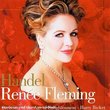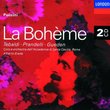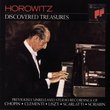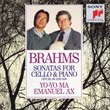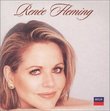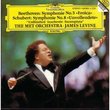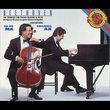| All Artists: Giacomo Puccini, Alberto Erede, Saint Cecilia Academy Orchestra, Renata Tebaldi, Gianna Diozzi, Giovanni Inghilleri, Giuseppe Campora, Luigi Pizzeri, Melchiorre Luise, Michele Calvino, Nell Rankin, Piero de Palma Title: Puccini: Madama Butterfly Members Wishing: 0 Total Copies: 3 Label: Decca Release Date: 4/12/1994 Genre: Classical Style: Opera & Classical Vocal Number of Discs: 2 SwapaCD Credits: 2 UPC: 028944023022 |
Search - Giacomo Puccini, Alberto Erede, Saint Cecilia Academy Orchestra :: Puccini: Madama Butterfly
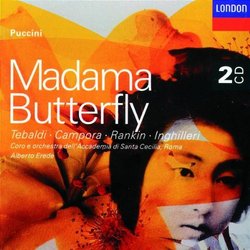 | Giacomo Puccini, Alberto Erede, Saint Cecilia Academy Orchestra Puccini: Madama Butterfly Genre: Classical
![header=[] body=[This CD is available to be requested as disc only.]](/images/attributes/disc.png?v=a4e11020) ![header=[] body=[This CD is available to be requested with the disc and back insert.]](/images/attributes/disc_back.png?v=a4e11020) ![header=[] body=[This CD is available to be requested with the disc and front insert.]](/images/attributes/disc_front.png?v=a4e11020) ![header=[] body=[This CD is available to be requested with the disc, front and back inserts.]](/images/attributes/disc_front_back.png?v=a4e11020) |
Larger Image |
CD DetailsSimilarly Requested CDs |
Member CD ReviewsReviewed on 12/8/2006... New, never opened. 0 of 4 member(s) found this review helpful. Reviewed on 11/2/2006... New, never opened. 0 of 4 member(s) found this review helpful.
CD ReviewsBeautiful Tebaldi but poor recording quality! A reviewer | 10/05/2000 (4 out of 5 stars) "That is also the main reason why I rated this edition with 4 stars.Renata Tebaldi performes wonderfully (she surely deserves 5 stars)but the recording quality is unable to catch her high-powered notes.In addition,I believe that Bergonzi (on the other Decca set with Tebaldi) is a far better tenor than Campora.The rest of the cast is very good containing a wonderful Sharpless.However,if one accepts the poor recording quality (usual for most recordings made before 1956) this edition remains a beautiful Butterfly." Great Butterfly, terrible cast and conductor Leroy I. Sykes | 11/29/2002 (4 out of 5 stars) "Renata Tebaldi shows us in this recording why her Butterfly was the best sung bar none. Her singing is astoundingly beautiful and secure. She makes full use of her special histrionic abilities. Her interpolated laughs are out of place, but she is so sincere that she can be forgiven. "Un bel dì" is marvelous. The high notes at the end are huge. Unfortunately, the recording's mono sound distorts all of Tebaldi's powerful high notes. The entire aria is sung with so much warmth and feeling that one can hardly imagine it being sung better by another soprano. However great her singing is on this recording, she has a terrible cast to support her. Giuseppe Campora makes an ardent and believable Pinkerton, but he just does not have the style of Carlo Bergonzi on Tebaldi's second "Butterfly". Alberto Erede, the conductor, should have pounded home the orchestral climax of the love duet like most conductors do. Instead, he makes it sound weak and underpowered. His conducting is very routine. Giovanni Inghilleri is just terrible as Sharpless. Rolando Panerai should have been picked for this role. Now there was a really great Sharpless. Nell Rankin stinks as Suzuki. An Italian mezzo-soprano would have done this role much more justice. Rankin's Italian is very poor and most of the R's are not even rolled. The others in the cast do an OK job. If you get Tebaldi's other "Butterfly", be prepared for a voice that has lost its wonderful youthful sheen, but still retains its gorgeous timbre. She also sings "Un bel dì" and the "Death Scene" quite differently than she does on this recording. That recording should be your first choice for any "Butterfly" recording. Do not purchase Renata Scotto's first recording of "Madama Butterfly". She is not a spinto and therefore, cannot do vocal justice to the very demanding role of Cio-Cio San. Her rendition of "Un bel dì" makes that recording inferior to Tebaldi's second recording of this Puccinian masterpiece. "Un bel dì" is sung so slowly that it ruins the aria's beauty. Also, the high notes at the end are weak and are only held for a very short time. Scotto's voice was incompatible with the role's enormous vocal demands. Any of Victoria de los Angeles' studio recordings of "Madama Butterfly" are worth your while. Her voice is absolutely beautiful on those recordings. However, her Italian, while perfectly pronounced, sounds very strange to my ears. Oh well. Happy CD shopping!"
|

 Track Listings (22) - Disc #1
Track Listings (22) - Disc #1